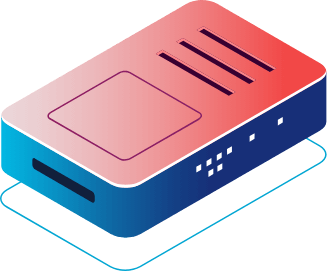What is a VPN?
A VPN is an acronym for “Virtual Private Network,” a mechanism for protecting your Internet connection and online privacy.
This page is intended to answer the question, “What is a VPN?” and if you have any questions, this page will explain the definition, meaning, mechanism, and benefits of VPN in an easy-to-understand manner.

What is a VPN connection?
A type of network that treats a publicly provided network as a private network is called a virtual private network (VPN), and connecting to the Internet via this VPN is called a VPN connection.
A VPN reroutes your traffic to a remote server, encrypting the traffic in the process. Normally, when you attempt to access a website, your Internet Service Provider (ISP) receives your request and redirects you to your destination. However, when you connect to a VPN, your Internet traffic is redirected through a remote server before being sent to its destination.
In the meantime, the VPN hides your data from prying eyes by encrypting it.
In this way, neither the provider nor any other third party can see your browsing history, IP information, or privacy information such as the country or city from which you are accessing the site.
An example of a VPN connection


When you connect to the Internet through a VPN, the VPN establishes a secure virtual tunnel (i.e., a secure connection) between your terminal and the server. This virtual tunnel is used to forward all Internet traffic originating from your app or website.
To further secure the VPN connection, the VPN client and the VPN server encrypt data using a shared key, a code that cannot be deciphered.
The VPN client and VPN server do this each time data passes through the encrypted tunnel. That way, no one can snoop on your traffic. Once the data passes through, it is again decrypted into readable text using a shared key.
In this way, the VPN reliably hides your IP address, location, and online identity from Internet service providers and third-party websites.
For better VPN service
-
Protect your online privacy
You can encrypt your connection, change your IP address, and hide your connection area to enhance your online anonymity. You can also keep your location and browsing history private.
-
Access to content from around the world
It provides a network that allows free access to videos, music, social networking sites, etc. around the world, ignoring content restrictions and other regulations in each country.
-
Internet with enhanced security
It protects you from hacker access as well as malware protection, trackers, ads, and other concerns.
It can also keep you safe when you are on the go, for example, when using public Wi-Fi hotspots! -
Secure data sharing with encryption
Since the VPN connection is encrypted, data exchanged over the Internet cannot be intercepted by third parties.
Technologies for VPNs
-

Encryption and Shared Keys
Data transmitted over a VPN connection is converted into a string that cannot be deciphered by a third party, thus guaranteeing high security.
However, if the string is left as it is, of course the recipient cannot decrypt it. For this reason, a shared key is used to decrypt the encrypted string. -

Tunneling
Tunneling is a technology that builds a virtual communication path on an Internet circuit to allow communication to be sent and received.
The use of this tunnel prevents third parties from viewing the information and ensures security. -

Encapsulation
This is a technology that creates strong security by encapsulating data in a procotr when communicating data over a virtual communication path laid out by tunneling.
Encapsulated data is further encrypted to achieve more secure communication.
Use Cases
No one likes to be monitored or tracked. Even if you have nothing to hide.
And as long as you use the Internet, you are at risk of having important data leaked unexpectedly.
That’s why it’s important to be prepared to protect your Internet privacy. Here we will discuss when you need a VPN.
-
When using public Wi-Fi
A VPN is used to protect you on public Wi-Fi connections, allowing you to connect to the Internet in complete privacy. Hackers have many ways to steal your data at public hotspots, but with a VPN you can make your online traffic invisible to them.

-
When traveling
VPNs are also useful when traveling around the world.
Not only can you access sites in your own country, but you can also access social networking and content sites from countries with strict censorship and regulations!
-
When you are surfing
the InternetInternet service providers, corporate marketing, and in some countries even governments want to collect your browsing history, the messages you exchange, and other personal data. A VPN is a safe and secure way to hide it.

-
When shopping online
VPNs allow you to avoid price manipulation, fake sites, and bait-and-switch schemes.
You can shop safely on public Wi-Fi and other networks without fear of your credit card information being intercepted.
Selectable VPN encryption
protocol types
A VPN protocol is the foundation of a VPN that clearly defines the transmission speed, security performance, and stability of a VPN connection, and EmpowerVPN users can choose the VPN protocol that best suits their desired application.
-
OpenVPN
Highly configurable with the most common encryption standard currently used by the majority of VPN providers worldwide.
Offers a good balance of speed and security.
Ideal for online gaming and live streaming. -
IKEv2/IPSec
For example, it is ideal when using both Wi-Fi and mobile connections while on the go.
It has features such as the ability to restore a secure connection after a disconnection, which is powerful when frequently switching connections or moving between hotspots. -
L2TP/IPSec
This is a procotr using L2TP, a device-to-device communication method, and IPSec, which creates a VPN-like environment via an encryption key.
It is very secure, but has the disadvantage of slow speed. -
PPTP
This VPN has been in use for quite some time, and encapsulates “PPP”, which was widely used for telephone lines, etc., with “GRE” to perform VPN communications. It is easy to set up, but the security aspect is unstable because the technology is several decades old.
-
SSTP
SSTP to the aforementioned PPTP improves security by eclipsing SSL/TLS, encrypted communications. Because it can easily circumvent firewall restrictions, it is a suitable alternative to standard protocols in areas where VPNs are restricted.
How to connect to a VPN
EmpowerVPN offers several different ways to configure your VPN connection for use with a variety of devices and more.
Encrypted communication connections are available anytime, anywhere!
-

Set by yourself
If you have knowledge about VPN, you are free to configure it.
Don’t worry if you make a mistake during configuration. If you need assistance, we have detailed tutorials and customer support in our Help Center. -

Installation on Router
Installing a VPN app on your everyday Wi-Fi router protects all connected devices with strong encryption. This is a setup for knowledgeable intermediate users, but it will allow you to use a secure Internet connection throughout your home or office.
